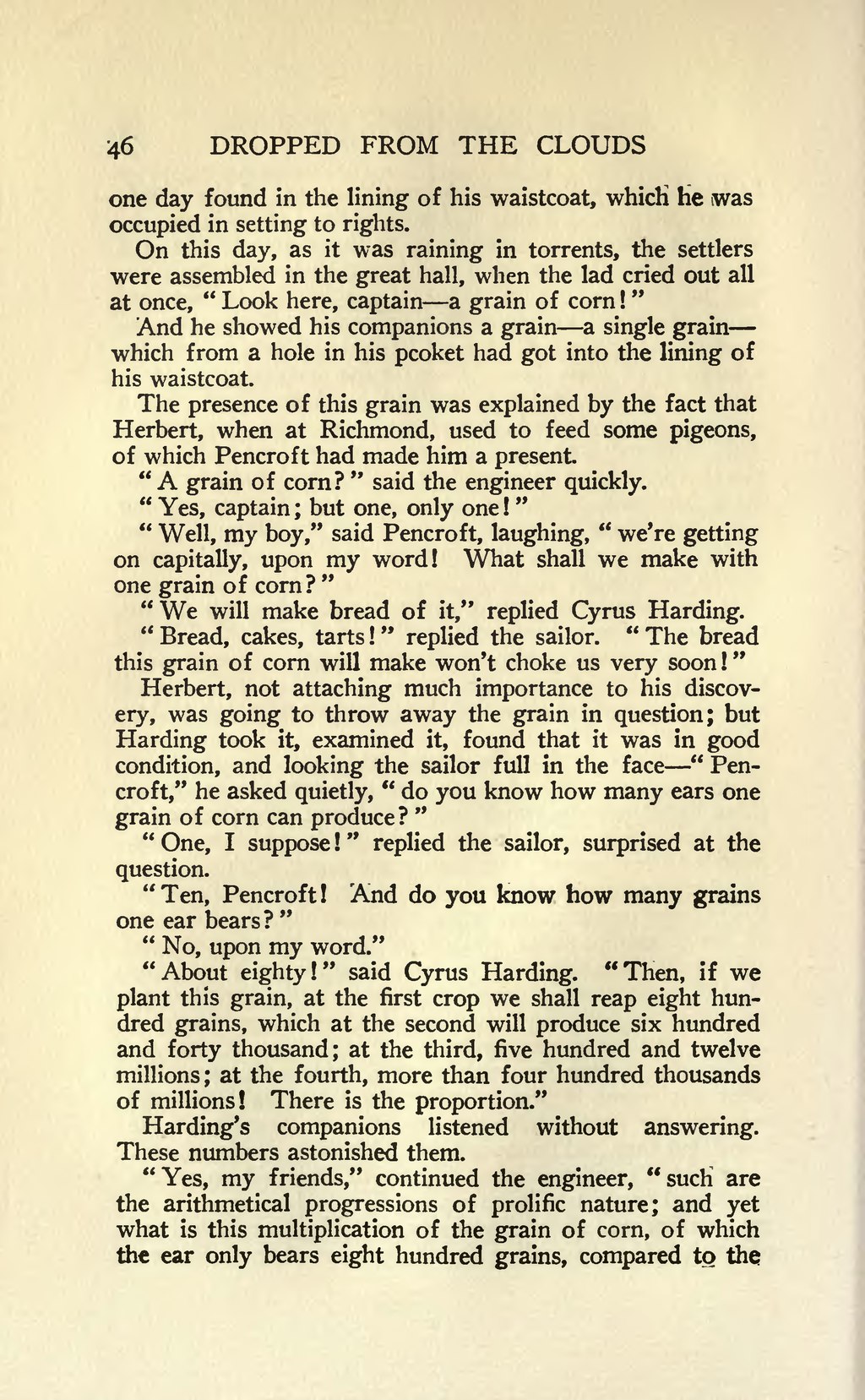one day found in the lining of his waistcoat, which he was occupied in setting to rights.
On this day, as it was raining in torrents, the settlers were assembled in the great hall, when the lad cried out all at once, "Look here, captain—a grain of corn!"
And he showed his companions a grain—a single grain—which from a hole in his pcoket had got into the lining of his waistcoat.
The presence of this grain was explained by the fact that Herbert, when at Richmond, used to feed some pigeons, of which Pencroft had made him a present.
"A grain of corn?" said the engineer quickly.
"Yes, captain; but one, only one!"
"Well, my boy," said Pencroft, laughing, "we're getting on capitally, upon my word! What shall we make with one grain of corn?"
"We will make bread of it," replied Cyrus Harding.
"Bread, cakes, tarts!" replied the sailor. "The bread this grain of corn will make won't choke us very soon!"
Herbert, not attaching much importance to his discovery, was going to throw away the grain in question; but Harding took it, examined it, found that it was in good condition, and looking the sailor full in the face—"Pencroft," he asked quietly, "do you know how many ears one grain of corn can produce?"
"One, I suppose!" replied the sailor, surprised at the question.
"Ten, Pencroft! And do you know how many grains one ear bears?"
"No, upon my word."
"About eighty!" said Cyrus Harding. "Then, if we plant this grain, at the first crop we shall reap eight hundred grains, which at the second will produce six hundred and forty thousand; at the third, five hundred and twelve millions; at the fourth, more than four hundred thousands of millions! There is the proportion."
Harding's companions listened without answering. These numbers astonished them.
"Yes, my friends," continued the engineer, "such are the arithmetical progressions of prolific nature; and yet what is this multiplication of the grain of corn, of which the ear only bears eight hundred grains, compared to the
